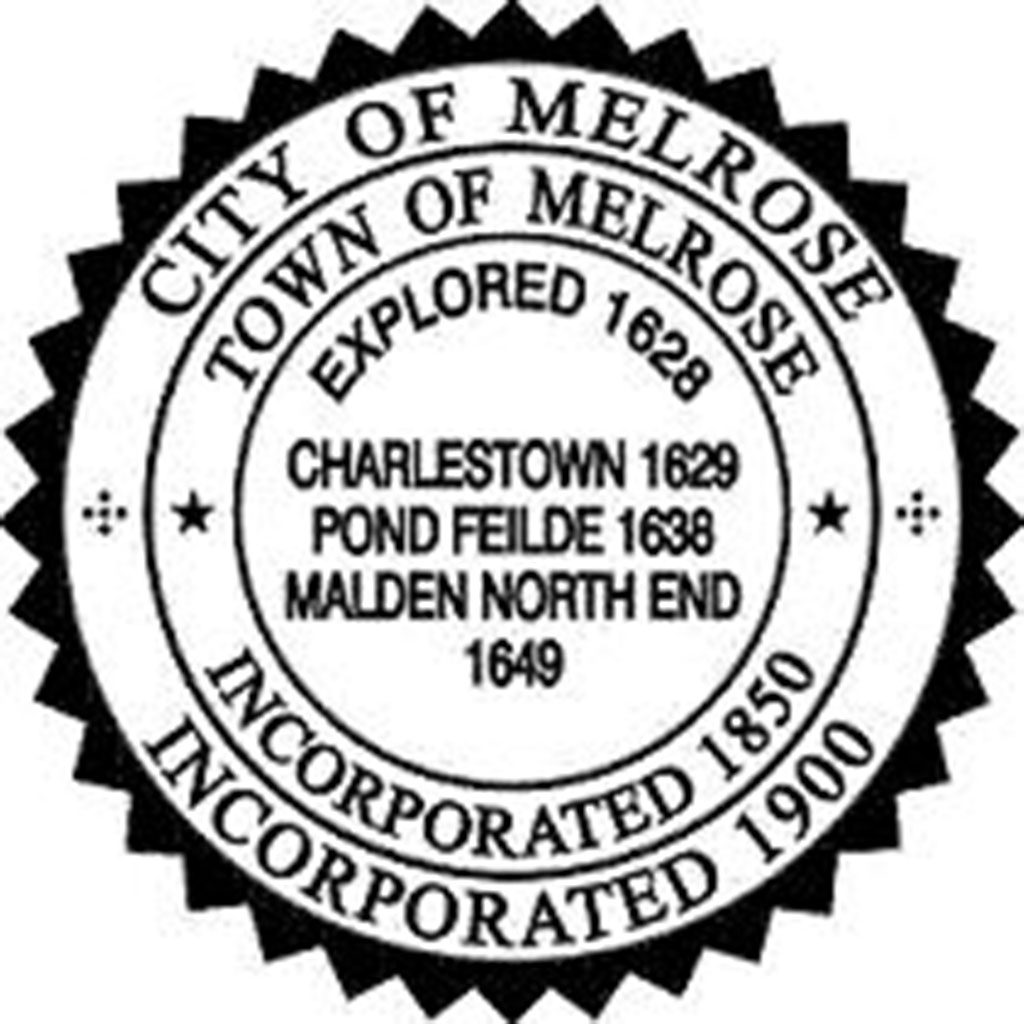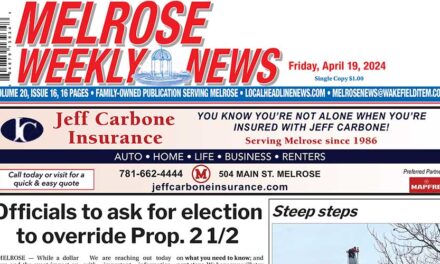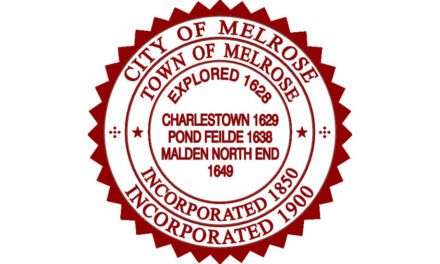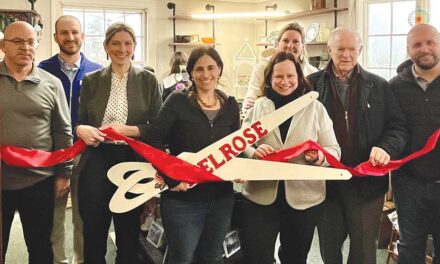Published February 5, 2021

MELROSE — Continuing to steer Melrose sharply towards the politically correct, Mayor Paul Brodeur, most of the City Council, all School Committee members and other officials want to change the Columbus Day holiday to Indigenous Peoples Day. This time, it appears to be a done deal.
Last week, Brodeur invited the community to join in declaring the second Monday in October as Indigenous Peoples Day in Melrose. Friday is the deadline for residents, organizations or other municipal committees to sign onto the proclamation.
It reads:
WHEREAS, the City of Melrose recognizes that the Indigenous Peoples of the lands that would later become known as the Americas are native to these lands; and
WHEREAS, the City of Melrose recognizes, values and celebrates the many contributions made to our community, our Commonwealth and our country by Indigenous Peoples now and throughout our history; and
WHEREAS, the City of Melrose, in an effort to promote truth, healing, reconciliation, redress and justice, recognizes and acknowledges the ongoing trauma and historical harms, acts of genocide, and violations of human rights of Indigenous People caused by Columbus and European colonization; and
WHEREAS, the City wishes to honor our local Massachusett Tribal heritage and our national Indigenous roots, history and contributions;
WHEREAS, the Massachusetts State Legislature recently passed a bill providing for the creation of a special commission to make recommendations for a new or revised state seal and motto, thereby reflecting growing momentum within both state and local government to redress the harm to Indigenous peoples caused by the promotion of false histories; and
WHEREAS, the District of Columbia, States of Alaska, Louisiana, Maine, Michigan, Minnesota, New Mexico, Oregon, South Dakota, Vermont, Wisconsin, and municipalities including Salem MA, Somerville MA, Cambridge MA, Brookline MA, Marblehead MA, Newton MA, Northampton MA, Amherst MA, Los Angeles CA, San Francisco CA, Denver CO, Portland OR, Seattle WA, Columbus OH and many more observe Indigenous Peoples Day to promote Indigenous cultures and commemorate the history of Indigenous Peoples; and
WHEREAS, the City of Melrose is one community open to all; that celebrates and welcomes everyone; that is dedicated to promoting equity and justice in our City; and that is committed to policies and practices that seek to end systemic racism and discrimination;
NOW, THEREFORE, BE IT PROCLAIMED THAT:
1. The second Monday of October henceforth be commemorated in Melrose as Indigenous Peoples Day; and
2. The City of Melrose recognizes the position of Indigenous Peoples as native to these lands and that Melrose is indigenous land; and
3. The City of Melrose celebrates and honors the foundational contributions of indigenous peoples to the history of our city, the Commonwealth of Massachusetts, and our country; and
4. The City of Melrose encourages our public schools to observe Indigenous Peoples Day with appropriate instruction to celebrate the culture, diversity, and history of Indigenous Peoples.
One of the few local officials not on board with the proclamation is City Councilor John Tramontozzi. The Ward 1 representative is very active in Italian-American groups like the Sons and Daughters of Italy, and is heavily into promoting Italian heritage when he can.
In a letter inside this week’s paper, he writes, in part, “I understand that there is tremendous interest in re-appropriating the Second Monday in October to honor the tragic impact of Colonization on Indigenous Peoples, nationally and in Melrose. I appreciate that there is tremendous passion in this movement and that the goal of the Proclamation is to help a marginalized population heal, address the needs of advocates to effectively champion their principles, right historical wrongs, and move forward with integrity while minimizing additional injury to others by addressing this issue in this way. Please understand that while I could never begin to speak to the experience of the generations of Indigenous Peoples, I do believe I can speak, in a small way, to the ancestral experience of over 16 million Italian Americans here in the United States.
“The Proclamation’s use of the term ‘acts of genocide,’ which necessitates the intention to eliminate an entire race of people, has been determined by scholars not to have been Columbus’s intention. It is my position that the use of this phrase in the Proclamation is inappropriate….
“What is currently celebrated as ‘Columbus Day’’ and which I submit may be better designated as “Italian American Heritage Day.” (It is important to note that Presidents Obama, Bush and Clinton all issued Proclamations around Columbus Day in recognition of Italian American Culture and Heritage) It was first celebrated in 1792, but was introduced legislatively in 1892 . The Columbus Day holiday was also designated by a political body to acknowledge the subrogation, abuse and trauma of a race of people. The formal designation was a response to the largest single mass lynching in recorded American history. Following the murder of the New Orleans Police Chief, the mayor rounded up more than 100 Italian Americans tagging the crime on “Sicilian gangsters”. Eventually, 19 were put on trial and were found not guilty. Before they could be freed, however, a mob of 10,000 people, broke into the jail. They dragged 11 Sicilians from their cells and lynched them, including two men jailed on other offenses. The lynching may have been the most violent expression of anti-Italian feeling in America, but far from an isolated event. Catholic churches and charities have been vandalized and burned, Italian designated as enemy aliens’ marginalized, and vilified and villainized, murdered, denied representation, citizenship and work and racially profiled for generations. The lynching in New Orleans are a reminder of how quickly anti-immigrant rhetoric can turn deadly—even in a city that now proudly celebrates its Italian heritage.
“The result of this is potentially divisive rather than healing. Italian Americans make up between 17.9%-18.56 % of Melrose’s population; and of 100 cities in Massachusetts most populated by Italian Americans, Melrose is in the top 25 as having a representation of Italian descent. These people can both identify with at least some of the trauma of the Indigenous Peoples and support their right to collectively heal. l do not speak for every person of Italian descent, but I believe I speak for many. While I recognize the impact of the designation of “Columbus Day” and its associations to many, the healing of one group need not come at the expense of another historically racially oppressed group.
“With this in mind, I would have preferred that we choose not to reallocate a day in which a marginalized and stigmatized group of Americans celebrate their culture and their history of overcoming these challenges. But to rename this day appropriately Italian- American Heritage and Culture Day. This would be consistent with the decisions/Proclamations of past U.S. Presidents and City governments across the nation, including Akron, OH, and New Haven, CT,” Tramontozzi concludes.
Other attempts have been named to change the name of Columbus Day. Recently, some members of the School Committee pushed a proposed annual school calendar which included the Indigenous Peoples Day holiday. They were told by their school board colleagues — particularly longtime member Margaret Driscoll — that a process had to be followed. Indigenous Peoples Day cannot just show up on a school calendar without some discussion, she explained.




